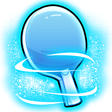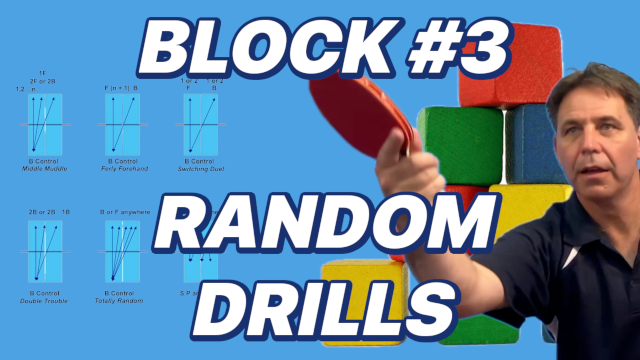Random Footwork Drills
Footwork
Ilia Minkin Asked 10 years ago
Hi Alois,
All the footwork drlls that I saw so far are regular ones -- the active person know where to expect the ball (unless they practice with an inconsistent partner). Does it make sense to add randomness to the footwork excercies, and what are the most useful patterns?
 Alois Rosario Answered 10 years ago
Alois Rosario Answered 10 years ago
Hi Ilia,
Once you are comfortable with the set drills you can certainly add a random element. You can do things like after 4 balls the blocker can hit the ball anywhere. Or play 2 balls to a set position and then every 3rd ball to a random position. The possibilities are endless.
In our Training Drills free downloads you will see a page dedicated to Random drills as well.
Recommended Video
Building Block 3: Master Random Drills for Match-Ready Table Tennis
The third building block of table tennis is practising random drills, where you don’t know where the ball will go. This type of training mimics real match conditions, helping you develop faster reactions and better decision-making.
Start with drills where 80% of the balls go to a set position and 20% are random. As you become more comfortable, gradually increase the randomness to challenge yourself further. Incorporating random drills into your training will make your game more dynamic and match-ready.
Here's a great video on helping you improve this building block
Watch NowThoughts on this question
Become a free member to post a comment about this question.

Ilia Minkin Posted 10 years ago
Very cool, I didn't notice that you have a playbook.
This can be a useful tool for training.
ujjval verma Posted 10 years ago
WOWOW... this is treasure !!!
Dieter Verhofstadt Posted 10 years ago
Very useful indeed.
I believe that the "double trouble" drill contains a printing error: "2B or 2B" should really be "2F or 2F" or at worst "2F or 2B". I don't think you want us to practice a backhand from the forehand side.
Cheers
Ilia Minkin Posted 10 years ago
I hope that Alois will not be angry if I put a link to another TT learning website :) For all of you guys, there is another very cool playbook -- http://www.experttabletennis.com/playbook/ . However, it is mostly about "advanced" rally scenarios, not basics.
Thanks Dieter. I will get that changed.